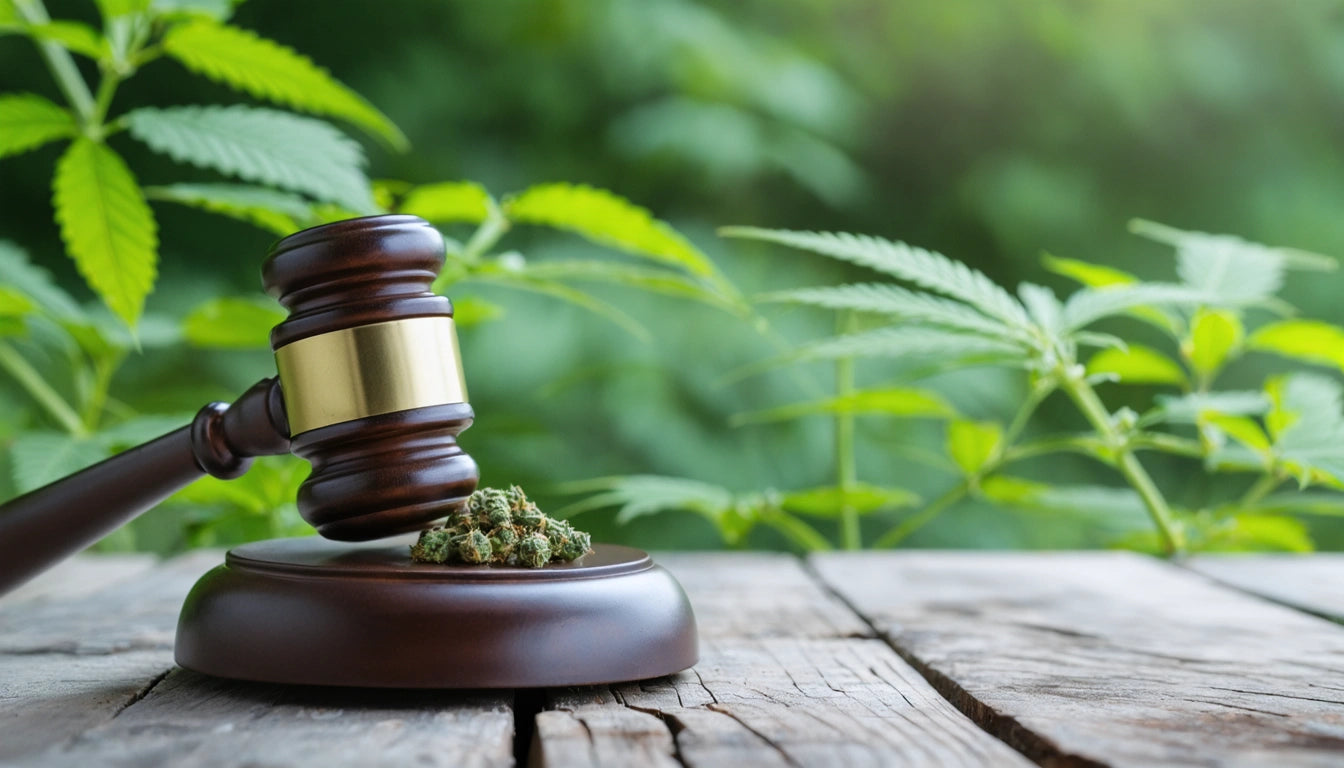Table of Contents
- What is THCA and Why is it Controversial?
- Legal Status of THCA in the United States
- States Where THCA is Legal
- States Where THCA is Illegal
- THCA Vapes in Texas: Current Legal Status
- Why THCA Exists in a Legal Gray Area
- Compliance and Packaging Considerations for THCA Products
- Evolving Regulations and What to Expect Next
THCA Legality: Understanding Which States Permit or Prohibit It
The legal landscape surrounding THCA products remains complex and frequently changing across the United States. As cannabis laws evolve at both federal and state levels, understanding where THCA is legal, where it's prohibited, and why it exists in this regulatory gray area becomes increasingly important for consumers and businesses alike.
What is THCA and Why is it Controversial?
THCA (tetrahydrocannabinolic acid) is the non-psychoactive precursor to THC found naturally in raw cannabis plants. Unlike THC, THCA doesn't produce intoxicating effects in its natural state. However, when heated through smoking, vaping, or cooking (a process called decarboxylation), THCA converts to THC and becomes psychoactive.
This transformation is precisely what creates legal complications. While THCA itself doesn't produce a high, its potential to become THC places it in a contentious position from a regulatory standpoint.
Legal Status of THCA in the United States
The legal status of THCA varies significantly across the United States. This variation stems from differences in how states interpret the 2018 Farm Bill, which legalized hemp (defined as cannabis with less than 0.3% THC) at the federal level. Some states focus on the THC content at the time of sale, while others consider the potential THC content after decarboxylation.
For businesses involved in the cannabis industry, proper compliant storage solutions like high-quality mylar bags have become essential for maintaining product integrity while meeting various state requirements for labeling and child-resistance.
States Where THCA is Legal
States where THCA is legal generally fall into two categories:
- States with recreational or medical cannabis programs where all cannabis products are permitted
- States that specifically allow hemp-derived products containing THCA
As of current legislation, THCA is typically legal in states that have legalized recreational marijuana, including:
- California
- Colorado
- Washington
- Oregon
- Nevada
- Michigan
- Massachusetts
- Illinois
Additionally, many states with medical marijuana programs permit THCA products for qualified patients. The specific regulations regarding possession limits, purchasing requirements, and product types vary by state.
States Where THCA is Illegal
Several states have explicitly banned THCA or enacted legislation that effectively prohibits it. States where THCA is illegal often include those with strict cannabis prohibition laws or those that have specifically addressed the THCA loophole.
States that have moved to restrict or ban THCA products include:
- Idaho
- Kansas
- Nebraska
- South Carolina
- Tennessee (recently enacted restrictions)
- Kentucky (with some exceptions)
These states typically consider the potential THC content after decarboxylation rather than just the THC content at the time of testing.
THCA Vapes in Texas: Current Legal Status
The question of whether THCA vapes are legal in Texas represents a particularly nuanced situation. Texas has a limited medical cannabis program but maintains strict prohibitions on recreational marijuana use.
Currently, Texas law creates some ambiguity regarding THCA products. While the state prohibits products containing more than 0.3% delta-9 THC, the law doesn't explicitly address THCA content. This has led to THCA products being sold in some areas of Texas, though recent legislative efforts have sought to close this perceived loophole.
Consumers should be aware that enforcement can vary by locality, and the legal landscape is subject to change as lawmakers continue to address these issues.
Why THCA Exists in a Legal Gray Area
The reason why THCA is legal in some jurisdictions stems from the specific language used in many cannabis regulations. The 2018 Farm Bill legalized hemp and hemp derivatives containing less than 0.3% delta-9 THC by dry weight. Since THCA is not delta-9 THC, products containing THCA but minimal delta-9 THC may technically comply with federal law.
However, this creates a situation where products that will effectively become psychoactive when used as intended (through heating) can be sold legally. This perceived loophole has prompted some states to revise their laws to account for "total THC" (including both THC and THCA after decarboxylation) rather than just delta-9 THC content.
Compliance and Packaging Considerations for THCA Products
For businesses operating in the THCA market, compliance with state-specific regulations is crucial. This includes proper packaging, labeling, and testing requirements that vary by jurisdiction. Many states require:
- Child-resistant packaging
- Clear labeling of cannabinoid content
- Warning statements
- Batch testing information
- QR codes linking to certificates of analysis
THCA flower products and concentrates often face additional requirements regarding storage and preservation to maintain potency and prevent premature decarboxylation.
Evolving Regulations and What to Expect Next
The legal status of THCA continues to evolve as legislators and regulators gain better understanding of cannabis chemistry and its implications. Several trends are emerging:
- More states are moving toward "total THC" testing methods
- Federal legislation may eventually address THCA specifically
- States with existing cannabis programs are refining their approaches to hemp-derived cannabinoids
- Testing and labeling requirements are becoming more sophisticated
For consumers and businesses navigating this complex landscape, staying informed about local regulations is essential. The distinction between where THCA is legal versus where it's prohibited continues to shift as states refine their approaches to cannabis regulation.
As the industry matures, expect more standardized approaches to emerge, potentially bringing greater clarity to the currently fragmented regulatory environment surrounding THCA products across the United States.
",










Leave a comment
All comments are moderated before being published.
This site is protected by hCaptcha and the hCaptcha Privacy Policy and Terms of Service apply.